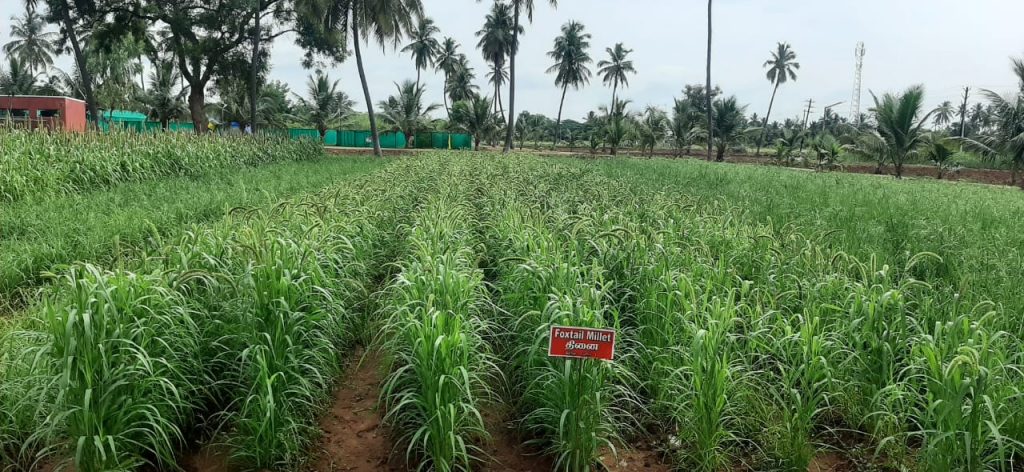Millet crop Cafeteria
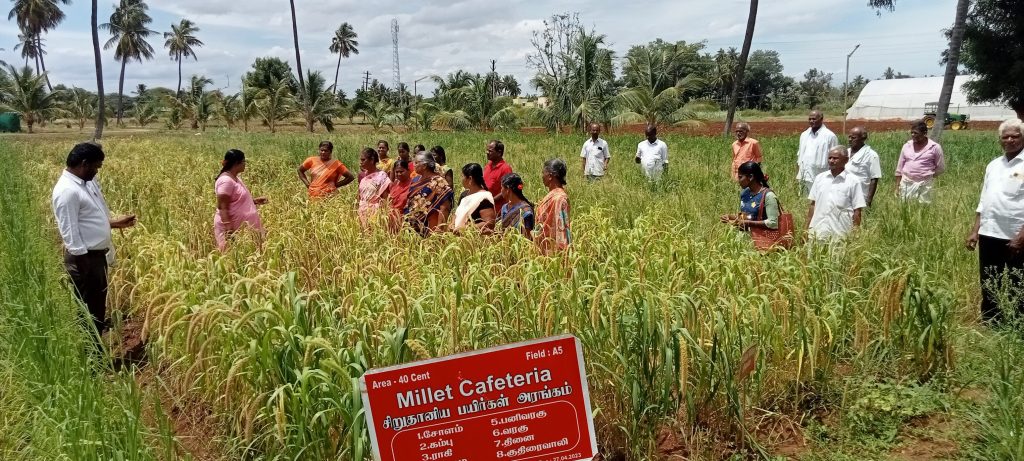
RABBIT PRODCUTION : Rabbit production can also provide additional source of income. Rabbit production business is suitable to all with no land space to rear livestock. House stay mother can also practice rabbit rearing. Rabbit are highly prolific, a good female 25-30 young one per year (@6-9 young one per kidding for 5-6 kidding per year). It can be reared in a very small space like backyard. Very quick return can be possible within 6 months of establishment. Female attain puberty at the age of 6 moths and reproductive performance up to 3 years, sex ratio 10+1.A modern rabbitary on cage house, is functioning with two breeds of rabbit viz., White Giant (12 numbers) and Soviet Chinchilla (8 numbers) at KVK Dharmapuri livestock farm complex. Hand mating is practiced; bunnies are weaned at 42nd day. Growers are sold after 2 months of age. Rabbits are fed with concentrate feed (120 g per day) in the morning and green fodder (120 g per day) hedge lucerne (Desmanthus virgatus), muyalmasal (Stylosanthus sp.) and subabul (Luceana leucocephala) in the evening. From 10+1 numbers of Rabbit can get Rs.32000/- per year.
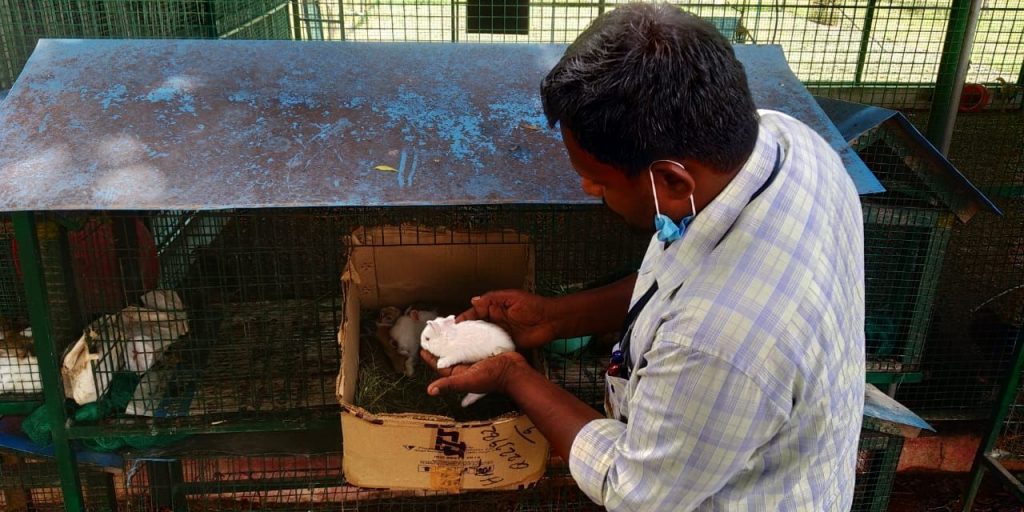
Bee Keeping – Apiculture is the practice of beekeeping and it’s a vital part of agriculture.

SLATTED GOAT REARING : Slatted goat rearing unit with poly urethane crate was established at KVK under the ARYA scheme during 2021-22 with a space of 200 square feet. Different breeds of goat Boer, Kanni, Tellicherry, Salem black are maintained for breeding, conducting training and demonstrations. At present 15 goat and 23 sheep are being maintained and this unit is functioning under KVK revolving fund scheme (Commercial goat rearing). Goats are reared under semi intensive system of grazing (6-8 hours per day) with concentrate supplementation. Periodical vaccination is carried out against Enterotoxaemia, FMD (Foot and mouth disease), PPR, Blue tongue diseases and periodically dewormed with broad spectrum anthelmintic (based on the faecal egg count). Kids are weaned at 3 months of age. Dipping is done twice in a year (March and September month). Pen mating is practiced.
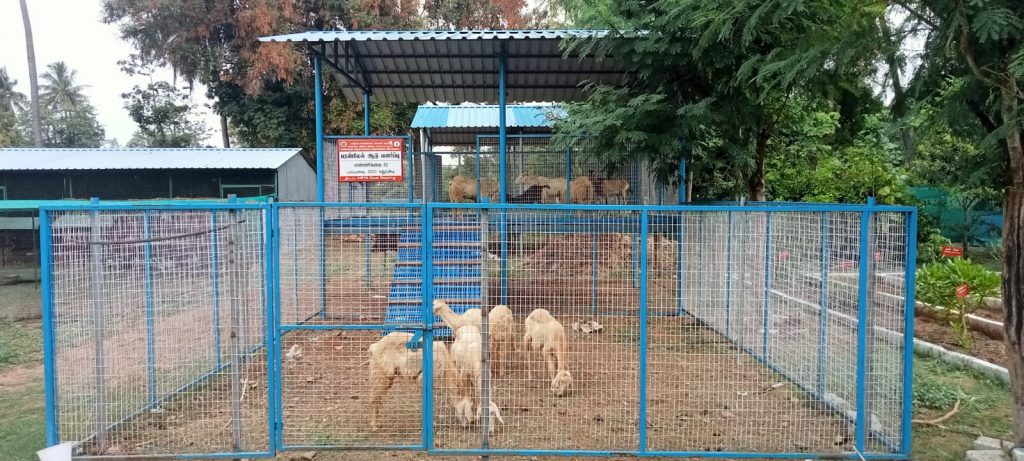
Vermicomposting Technologies
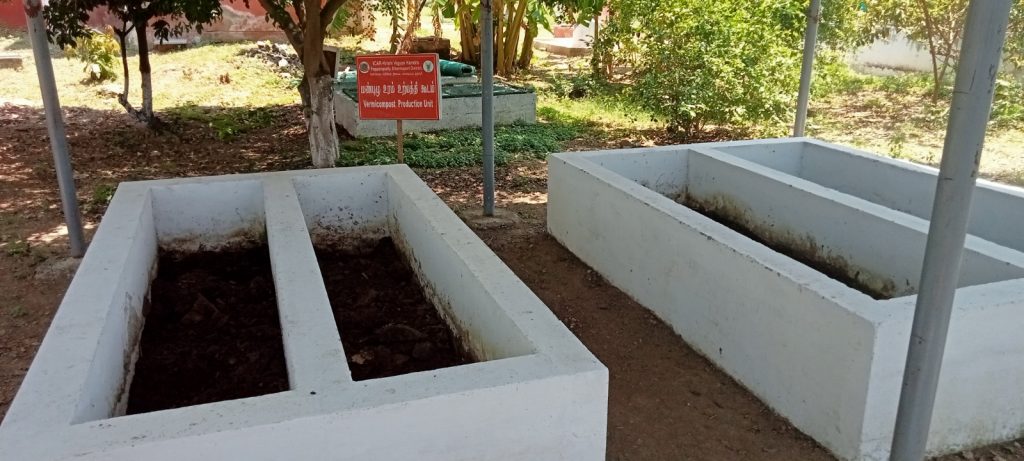
A model backyard duck unit The duck unit has Khaki Campbell breed of duck. At present 30 numbers of Khaki Campbell duck are being maintained and this unit is functioning under University revolving fund scheme (semi intensive duck farming). The Khaki Campbell is a great general-purpose duck for small farms. They are excellent layers, providing an average of 300 eggs a year, more than the average chicken, and having reliably great-tasting Ducks are reared under semi intensive system of rearing with concentrate supplementation. They can integrated with fish, poultry and paddy as a wet land integrated model. Periodical vaccination is carried out against duck plague and cholera and periodically dewormed with broad spectrum anthelmintic.
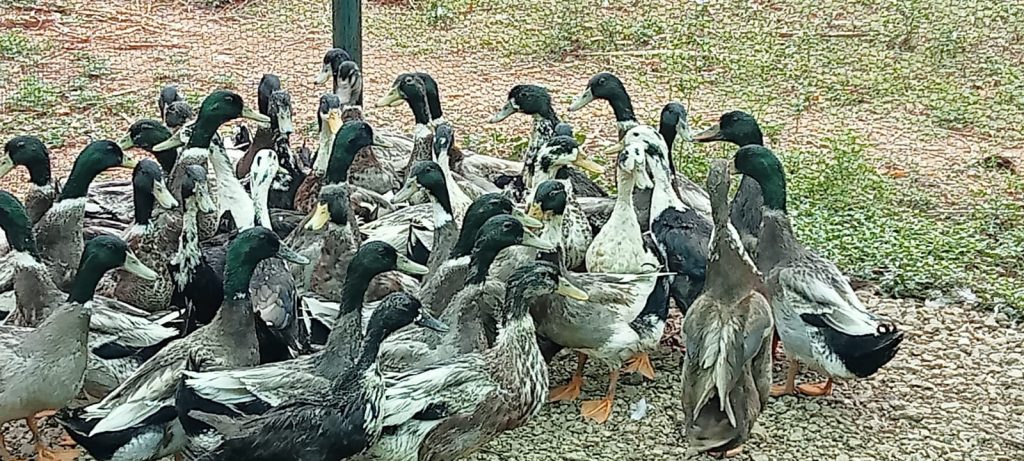
Dairy unit
A modern dairy farm unit is functioning with 2 dairy cow, 4 calves. Different breeds of dairy cattle like Holstein Frisian and Jersey are maintained for milking, breeding, conducting training and demonstrations. Average daily milk production is around 12 litres, average milk yield per animal is 8.51 litres and average peak yield is 16.32 litre/day/animal. Milking is done hygienically in a manual method of full hand milking and the milk produced is supplied to the staff quarter and milk cooperative society at a reasonable cost. LN2 container (35 L and 3L) are available for artificial insemination of dairy cows and calves. The dairy animals are vaccinated against Foot and Mouth Disease (once in 6 months).

Feed Unit
Low cost Livestock Feed unit:
Feed unit contains feed grinder (ARYA Scheme) with a capacity to grind 200 kg per hour , feed mixture (ARYA scheme) with a mixing capacity to 200 kg per hour and pellet making machine (SCSP Scheme) with a capacity of 50 kg per hour were established at KVK, for giving training to the farmers regarding preparation of low cost concentrate feed at home level with available feed resources for livestock and poultry since commercially available feed is high cost, commercially available feed are at the rate of Rs.25/kg but homemade preparation of feed comes only Rs.15/kg therefore farmers getting benefit Rs.10/kg of cattle feed. The raw materials are purchased through quotation basis at competitive rates based on the required specifications. The feed prepared at this unit is being supplied to KVK livestock and poultry and this machine were used for preparing concentrate feed to KVK Dharmapuri farm animals and poultry.
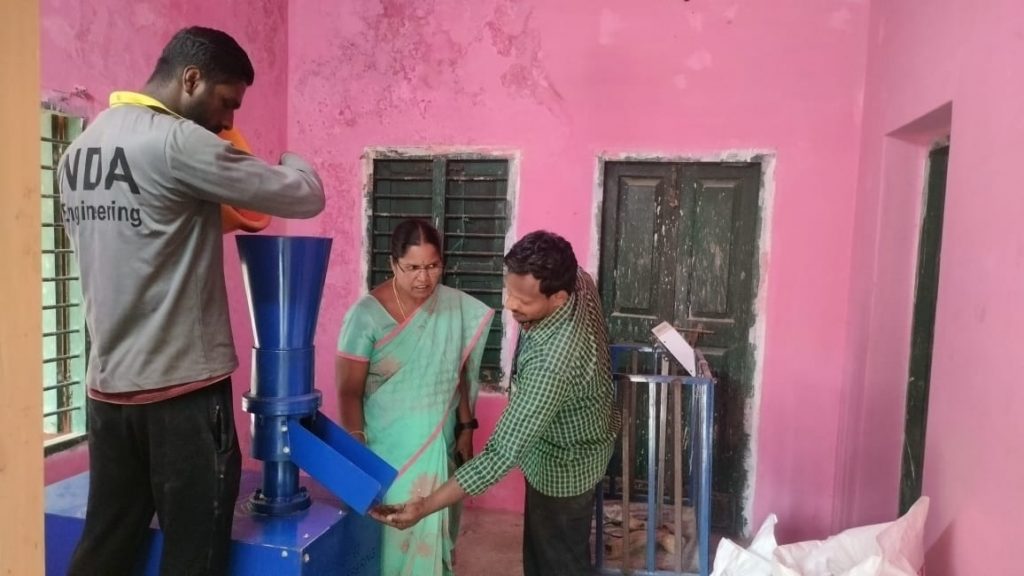
Integrated Farming System
